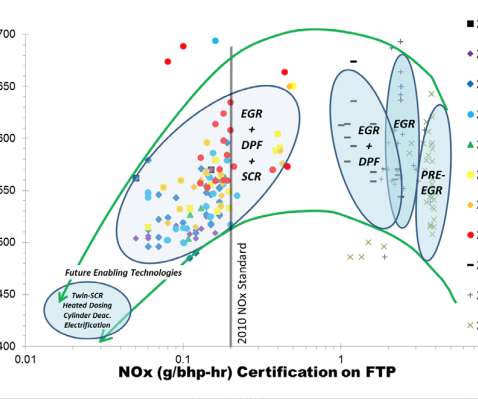HyBoost concept achieving close to Prius-level CO2 emissions; aggressive downsizing with advanced boosting and micro-hybrid system
Green Car Congress
NOVEMBER 1, 2011
variant but with fuel economy of a strong hybrid. HyBoost achieves this by combining aggressive 50% downsizing of the engine with an electric supercharger for transient low-speed performance, and a micro-hybrid stop-start and energy recuperation systems, Boggs said. Downsizing the 2.0-liter million units per year by 2020.


























Let's personalize your content